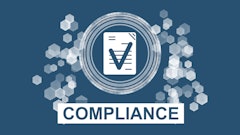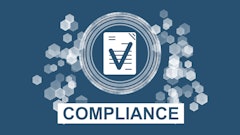
In today's interconnected and fast-paced world, the global logistics and supply chain industry has become a critical pillar supporting the seamless movement of goods and services across borders. Mastering the intricacies of this dynamic field is not only a fundamental business requirement but also a strategic imperative for success.
The landscape of global logistics and supply chain management is constantly evolving, influenced by a myriad of factors ranging from technological advancements and regulatory changes to geopolitical shifts and global crises. To thrive in this ever-changing environment, professionals in the industry must be equipped with the knowledge, expertise, and foresight to adapt swiftly to new challenges and opportunities.
Let's explore how professionals can become experts in their field, adeptly overcoming obstacles, demonstrating resilience during times of crisis and effectively preparing for regulatory issues and economic downturns.
Current State of the Industry
The global logistics and supply chain industry is currently undergoing significant transformations due to various economic, technological and geopolitical factors. The Center of Strategic & International Studies discussed the rise of an aggressive and revisionist China, a devastating global pandemic, the disruptive churn of technological advancement and—most recently—Russia’s invasion of Ukraine, and how these factors are prompting a dramatic rethinking of the value of lean, globally distributed supply chains.
While an interconnected world demands an increased level of efficiency, adaptability and collaboration to meet the growing demands of consumers and businesses alike, it is apparent that logistics professionals will continue to face a multitude of challenges that necessitate innovative solutions and a strategic approach to supply chain management.
Challenge: Globalization and Complex Networks
Supply chains are complex systems involving numerous factors including uncertainty, various decision-makers, global interactions and intricate webs representing the dynamics between products, money, information and people.
The increasing interdependence of economies and the proliferation of international trade have led to complex supply chain networks spanning multiple countries and continents. While globalization has opened up new markets and opportunities, it has also made supply chains more susceptible to disruptions caused by events such as political instability, trade conflicts or natural disasters.
Challenge: Volatility and Uncertainty
The global logistics landscape is rife with volatility and uncertainty, influenced by economic fluctuations, trade policies and unforeseen events like the COVID-19 pandemic. Rapid shifts in demand patterns and supply disruptions challenge logistics professionals to quickly adapt their operations to maintain continuity.
According to a study completed by Ernst & Young LLP (EY US), 60% of supply chain executives said the pandemic increased their supply chain’s strategic importance, causing urgency in designing a supply chain organization that will fit the new digital and autonomous-focused era and respond to volatility and uncertainty in the future.
Addressing these challenges requires a holistic and forward-thinking approach to supply chain management. Logistics professionals must proactively invest in technology, build collaborative partnerships and develop robust risk management strategies to thrive in today's interconnected world.
Demonstrating Resilience in Times of Global Crises
Building resilience and agility into supply chain strategies is imperative for organizations to withstand unforeseen disruptions. Solutions require diversification of suppliers and partnerships, a robust risk assessment and mitigation strategy, and supplier resilience, among others. While relying on a single supplier or having a limited set of partners can cause vulnerabilities and disruptions, some supply chain leaders are recognizing the importance of diversifying their supplier and partner networks, both geographically and strategically, allowing the company to mitigate risks and maintain continuity during disruptions or changes in the market.
Another strategy is to prioritize a thorough risk assessment process to identify potential points of failure early in the growth process. This can help a company develop a comprehensive mitigation plan to respond swiftly to disruptions. Disruptions can take a variety of forms, such as natural disasters, political instability and customer demand changes, making a significant impact on businesses, customers, and the economy as a whole.
In working closely with suppliers to understand their own resilience strategies, supply chain companies can ensure their partners can meet demand even during times of crisis. It’s recommended to also set up supplier assessments and ongoing performance evaluations to maintain a robust and quantify the efficiency and effectiveness of the supply chain as a whole.
Preparing for Regulatory Issues and Economic Downturns
Regulatory changes are a continuous aspect of supply chain operations globally; however, the three expected to impact business in 2023 include continued sanctions, greater sustainability requirements in the EU, and complications due to EU privacy laws. In order to prepare for the continuous changes in sanctions, a better option than manually searching for UBOs among thousands of suppliers is setting up a workflow technology using third-party data providers for real-time information on a suppliers’ ownership and flag risk.
To meet sustainability requirements in the EU, businesses will need to start tracking emissions, diversity and other ESG data and report it, similar to how they annually report financial data. And doesn’t end with the EU requiring this information, the CSRD may implement similar regulations around the world.
With the introduction of strict EU privacy law regulations, companies should prepare strong Anti-Money Laundering and supplier policies and have these ready in writing and in practice, following guidelines that demonstrate the company’s awareness of the laws, clearly assess the risks and how much risk the company is willing to take on, track regulatory changes, and demonstrate management approval and a tone of commitment to both preventing money laundering and working with sanctioned entities.
Building resilience and agility into supply chain strategies, coupled with proactive measures to address regulatory issues and economic downturns, are critical components of a successful global logistics and supply chain management approach. By implementing these insights, professionals can develop robust and adaptable supply chains that are prepared to withstand disruptions and excel in today's changing business landscape.


























